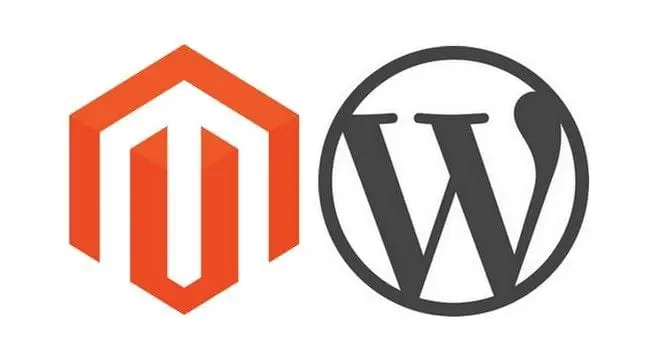When setting up an eCommerce store, your first decision will be whether to go with an open source or proprietary software. Here we tend to guide clients down the open source route, as it is not only cost effective but also allows for greater customisability.
If you want to go down the open source route, two of the biggest eCommerce platforms available are Magento and WooCommerce, however there are a number of differences between these two platforms that you will need to consider when making your decision.
About Magento
Magento is an industry-leading eCommerce platform which provides merchants with full control over every aspect of their online store. Using Magento, merchants can benefit from its fantastic out-of-the-box features, which include great inventory management, analytics and reports, multi-store management and mobile commerce.
Video source: https://www.youtube.com/watch?v=BBvsB5PcitQ
This highly functional eCommerce platform has something to offer businesses of all sizes and from all industries and is a scalable solution that will allow you to effectively future proof your online business.
About Woocommerce
Woocommerce is an open source WordPress plugin (see more about how Magento compares with WordPress here). Since launching at the end of 2011 it has become extremely popular, especially with small businesses looking to sell a limited number of products online. In fact, statistics show that WooCommerce actually powers a larger number of small sized businesses than Magento. This is about 395,000 Woocommerce vs 212,000 Magento sites worldwide as at November 2014.
If you are already familiar with the WordPress platform, then Woocommerce will feel very intuitive and natural to you. Like WordPress, it is extremely user-friendly, however if you are looking to sell thousands of products online, it may not quite offer the level of functionality you need.
Magento vs WooCommerce: Which is easier to use?
One of WooCommerce’s key selling points is the fact it is very intuitive and easy for less technically savvy merchants to use. With the same well-known administrative system as WordPress, WooCommerce makes it really easy for merchants to set up their stores. It has all the basics you need to get started with great functionality that allows you to upload your products with optional attributes and sales prices, put them into categories, set up basic shipping methods and configure tax rates.
Magento has a much steeper learning curve due to its range of complex (but beneficial) features that we have outlined in the next section. It will take you time to learn the system and customising it can be challenging, so you may require the help of an experienced web developer.
Magento vs Woocommerce: Customisations and functionality
In terms of customisation and functionality, WooCommerce’s offerings are fairly basic, though if you are only selling a small number of products and want to focus mainly on getting customers into your brick and mortar store with quality content, the platform will be more than enough for you.
There is also the option t0 extend the Woocommerce platform with premium plugins and custom development. You will need to do this if you want to offer coupons and make use of things like separate pricing levels.
On the other hand, you have Magento that offers exceptional out of the box functionality. It is an extremely powerful platform that offers a wide range of features that are not available to Woocommerce users by default. For example, Magento lets you set up multiple stores with different themes and manage them through one single backend. You can also integrate it with your brick and mortar store’s POS system for better inventory management.
If you want to extend the Magento platform further, there are thousands of different Magento extensions you can download and install and thanks to these extensions there is little you cannot do with a Magento eCommerce site!
Magento vs Woocommerce: Cost
Both Magento and WooCommerce are free to download and install but their long-term costs will vary, especially if you plan on extending the platforms and making use of custom themes.
Out of the two eCommerce platforms, Woocommerce is the least expensive, making a great choice for businesses on a tight budget. Whilst you do need to buy hosting (as you would a normal WordPress website) it will cost much less than Magento, which requires specialist hosting. You will also find that because the platform is less complex and sophisticated than Magento; its development costs are significantly lower, so you can benefit from cheaper plugins, themes and customisations.
Magento development can quickly add up and even though the Community Edition is free to download, the whole process of setting up your store can become very expensive; unless of course you opt to use the out of the box functionality and free extensions. If you do want to use premium extensions and invest in a bespoke theme, you will find the costs to be significantly higher than for WooCommerce developments. This is due to the fact that Magento is quite a complex platform and only developers with experience using it know how to develop it properly.
With higher development costs, Magento is much better suited to medium to large businesses that have the budget to get the most out of it and make a higher return on investment from their bespoke customisations.
Which is the best choice for your business?
It is clear from this comparison that both Magento and WooCommerce have different strengths and weaknesses, so really your decision comes down to your business goals.
If you are only planning on building a small eCommerce website with a limited product range on a low budget, then WooCommerce is the way to go. On the other hand, if you run medium sized or large businesses with a high volume of products and greater financial resources, Magento will prove to be the most beneficial platform.
Before we leave you to decide, our final tip is to consider your future needs and requirements, as well as your short-term goals. If you have plans to grow your eCommerce store, you may find it better to choose Magento now, as it will save you having to migrate in the future.
For expert advice on choosing the best eCommerce platform for your business, feel free to get in touch with our web development team.

A selection of our older posts, written by various members of the team between 2015 to 2021.








0 Comments